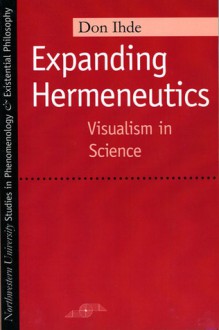

The first part of this book was ok, but it kept losing focus until I lost track of the author's ideas. I understand that Idhe is trying to view hermeneutics on the light of science, but I think that his ideas are far-fetched. His style of writing is also a bit complicated for individuals who have just started getting interested in hermeneutics. So I do not recommend reading this book until one is well acquainted with hermeneutics, and even then...

it is only after reading 158 pages of this book that i realise that I dont really want to investigate the affinities between hermeneutics and maths. maths is not really part of my interests, and I only wanted to read about it in order to investigate a mutation resulting in technoscience.
I will stick to my humanities. Vive la littérature

I do appreciate that this book attempts to reconcile old disciplines (hermeneutics) with contemporary phenomenological contexts (technology), but I feel as if it is "yoking together" things by violence rather than giving us a clear vision of what the author really means.
He uses stances that seem to me far-fetched.
Don't get me wrong. I do agree with him in what concerns the necessity of applying hermeneutics to the contemporary world, but this reconciliation has to be smoothly undertaken. And that is what lacks in this book so far.

I am really not impressed with this book so far.
What I am reading is not something that is raising my curiosity. Rather, I am reading summaries of theories I alread know, and I am getting the accomplishments of the author. He is mainly citing his other books, and paraphrasing the contents of the books of other authors.
I do hope that this is only a way to set the ground for a more profound analysis, and not what there is to the book.